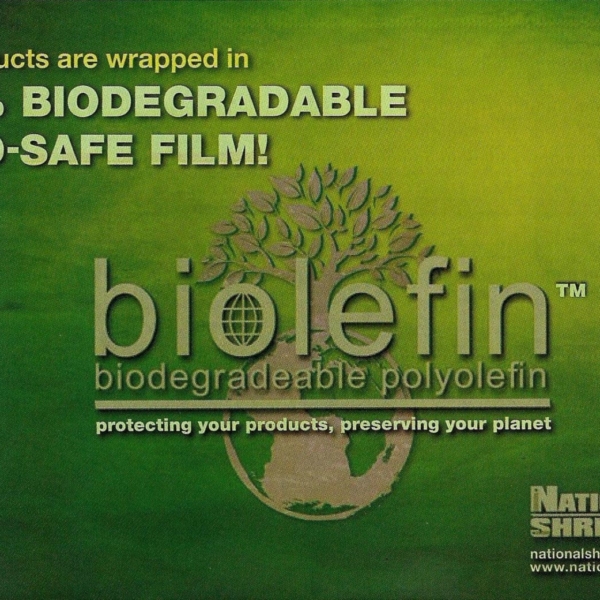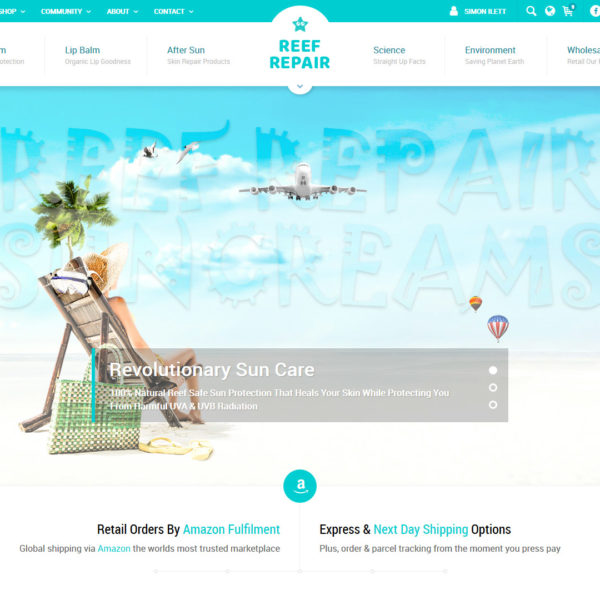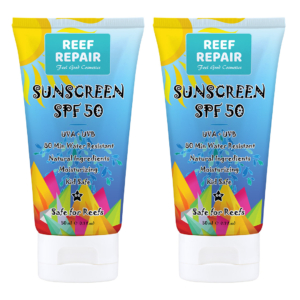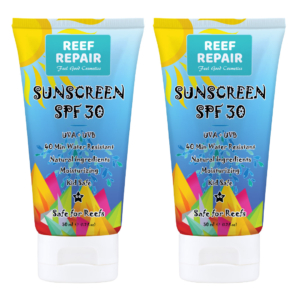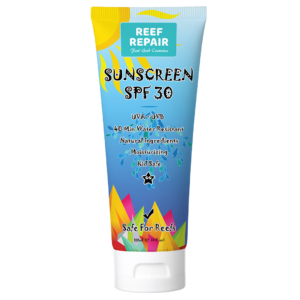Is Titanium Dioxide A Good Ingredient In Sunscreen?
Recently we shared an article that caused an uproar, it was a badly titled piece of writing that referenced both good and questionable sources to justify the arguments it was making about Titanium Dioxide and whether or not Titanium Dioxide was responsible for causing cancer in humans.
To be clear, this was not an article we wrote, to be clear, it caused a heavy division between people who read it, to be clear, the article’s title was sensational and proclaimed that the sun doesn’t cause skin cancer, to be clear, the sun definitely can cause skin cancer. [1]
To be clear, the article in question was attempting to convey that Titanium Dioxide isn’t the best choice of ingredient to use in sun creams and sunscreen, it used a sensational title as ‘click-bait’ and that really angered millennial’s (not hard) and people who swore that their brothers were totally like scientists and stuff.
Join us as we make a far less sensational and way more boring attempt at clarifying myths and answering some questions about Titanium Dioxide.
What Is Titanium Dioxide Anyway?
Since you can read about what Titanium Dioxide (TiO2) actually is via Wikipedia, we will keep things simple and in clear context of what Reef Repair does, which is making natural sun care products that harm neither coral reefs nor us human folk.
In brief, Titanium Dioxide is a naturally occurring mineral used in many sun cream & sunscreens. Titanium Dioxide has some useful properties that help prevent harmful radiation from the sun from damaging our skin. There is no known biological role for Titanium or Titanium Dioxide in humans.
Defining The Problems With Titanium Dioxide
So far we’ve told you that some people think Titanium Dioxide causes skin cancer, we’ve also mentioned Titanium Dioxide from now on referred to as TiO2 so we sound like sexy scientist’s, is used in many sun creams & sunscreens.
This has recently put TiO2 in the spotlight and led many people to ask some very hard to answer questions about Titanium Dioxide, here they are in bullet point form.
- Does Titanium Dioxide Cause Cancer?
- Is Titanium Dioxide a Good Ingredient In Sunscreen?
- Can Titanium Dioxide Affect My Health?
- Does Titanium Dioxide Kill Coral Reefs?
Those are the issues facing us when we talk about TiO2. Lets jump right in and see what we currently know about TiO2 and whether or not we can separate what is conjecture and sensational tripe from what is verified truth of the matter fact.
Does Titanium Dioxide Cause Cancer?
Some people believe TiO2 causes cancer in humans, OK fine, some people also believe the earth is flat, definitely not fine. Many people simply believe whatever they wish to believe, because disregarding science and logic to maintain a previously held belief makes one feel safe or comfortable.
Since we are here anyway, let’s try asking science first to see if this claim is true, plausible or downright false. This will be a recurring theme over the course of this article, whether or not something is a truth, a plausibility or a falsehood, sadly most people can’t tell the difference anymore, but dam it to hell; we gonna try anyway and with colours.
The study that led to the classification above used rats, not humans, this study focused on Titanium Dioxide dust when inhaled, which also means it likely used nano TiO2. The study found that the exposure to Titanium Dioxide dust by rats caused respiratory tract cancer in those rats.
Everyone loves making assumptions, here is one from us, assumptions make us feel pretty smart and sound good on social media. In reality, things that cause cancer in experiments done with rats do not equate to proof that those same things cause cancer in humans, I guess this is also technically an assumption.
The observations of cancer in animals were considered, by IARC, as relevant to people doing jobs with exposures to titanium dioxide dust Wikipedia
Considered is the important word here, considered does not mean proven or even tested, considered just means it was “thought about” for a little while. Also it was only considered in context for people exposed regularly to titanium dioxide dust, not sunscreen users. So here is a better way of writing that quote above.
We have no evidence or scientific data to support a claim that TiO2 causes cancer in humans Reef Repair
There truly is very little, in fact next to no scientific research that TiO2 causes cancer in humans, nor does the IARC study prove this.
Remember this when you misquote us later, we said, there is little to no scientific evidence (peer reviewed research), that TiO2 (Titanium Dioxide), causes cancer (is directly responsible for cancer), in humans (you are a human). Damn me to hell for saying it, but find fault with that logic.
Actually in all truth we would like you to find fault with our logic, if there is research we are unaware of about TiO2 causing cancer (in humans), we want to know about it. We couldn’t find much of anything available publicly on the subject and seemed to be constantly reverting back to references on Wikipedia, which we all know has no valuable information or use in the real world.
You can send any studies or helpful information we missed to us via our email or join us for lunch on the Facebook Reef Repair group.
Is Titanium Dioxide a Good Ingredient In Sunscreen?
Titanium Dioxide is used in sunscreens and sun care products because it can protect you from some parts of the suns UV spectrum. Titanium Dioxide is also cheap and has been around for ages as a food colouring additive, additive to paints and some other useful industrial purposes, it is used primarily because it makes everything look white, really really white.
Here at Reef Repair and potentially (hopefully), most everyone would agree with the following two statements.
Firstly, Titanium Dioxide does not fully protect you from both UVA and UVB radiation[4], TiO2 mainly protects you from UVB only. Want to know why that is important? Go here, UVB & UVA Radiation.
If you can’t be bothered reading that article, there are basically 2 main types of UV radiation, they are UVB and UVA, you want to protect yourself against both. In short, UVB rays cause sunburn whilst UVA rays penetrate much deeper, causing irreversible cell & DNA damage, potentially leading to the formation of cancers.
To re-iterate, TiO2 only protects against UVB rays. Essentially there is no better way to explain where Titanium Dioxide protection sits on the UV spectrum than to show you a graph, so we made you this graph.
Remember our first point about what makes a good sunscreen? It was that “A good sunscreen protects you from both UVA & UVB rays (Broad Spectrum)”. So no, Titanium Dioxide is not the best choice, not by a long way, in fact it is not even in the same ball game as Zinc Oxide, which is the main active ingredient in all Reef Repair sun cream products.
- Type: Sunscreen
- SPF: 30
- Water Resistant: 40 Min
- UVA:
- UVA II:
- UVB:
- Reef Safe:
- Moisturizing:
- Recyclable:
- Baby Safe:
- Kid Safe:
- Non Oily:
- Natural: 100%
We should also briefly discuss point 2, that A good sunscreen does not paint you white. Titanium Dioxide’s main use in industry is to turn the things it is mixed with to a bright white color, this includes paints, coatings, plastics, papers, inks, foods, medicines (pills) and toothpaste.[5]
Those are all things you want to look white, obviously depending on the application. The one thing that you might disagree with being painted white, is you; when you need or want to use a sunscreen. You will likely find that any blend of Titanium Dioxide in your sun cream or sunscreen will create a thick whitening effect on your skin. Again we would like to highlight that an A+ grade cosmetic non nano Zinc Oxide (like those used in Reef Repair products) when applied to your skin is nearly transparent, no whitening effect, no thick sticky goo on your skin.
So is TiO2 a good ingredient in sunscreen and sun cream?
You decide, please don’t let us colour or sway your opinion with science and facts, you do you.
Can Titanium Dioxide Affect My Health?
We do not need TiO2 for anything to do with the normal daily function of our human biology.[6] If you are a sentient being of non human origin and this statement is factually incorrect for your species, we do apologise.
There is no known biological role for Titanium or Titanium Dioxide in humans. Reef Repair
We wrote that very early on in the article, right at the top, go on, go look. So if we don’t use TiO2 in our bodies, is it bad for us when it finds a way in there?
As we talked about earlier, there is some research (with rats) that indicates a link to the ability of Titanium Dioxide (dust) to cause cancer (in rats). So that’s not bad for you, that’s bad for rats.
Is there other science that says TiO2 is bad for you? Well there is some, but it is pretty thin, you really need to use your brain on this one, sorry.
Let’s take a look at some of the health concerns that Wikipedia (yes we know we can’t use Wikipedia) cites about TiO2, you will see that it’s all very confusing.
The safety of the use of nano-particle sized titanium dioxide, which can penetrate the body and reach internal organs, has been criticized. Wikipedia
Studies have also found that titanium dioxide nanoparticles cause inflammatory response and genetic damage in mice. Wikipedia
The mechanism by which TiO2 may cause cancer is unclear Wikipedia
That is a lot to consider, even if you follow the referenced links for those statements you find articles like this one, claiming that the European Chemicals Agency (Echa) has concluded that titanium dioxide may cause cancer if inhaled, leading to it’s potential banning by the European commission.[7]
We all know how uppity the Europeans get about safety in food and cosmetics, for instance in the EU there are over 1,000 chemicals banned for use in cosmetics alone, while the USFDA still lists Formaldehyde as totally cool and ok.[8]
Will Titanium Dioxide be added to the EU’s list of banned ingredients? No one really knows yet.
At the end of the day you actually need to decide for yourself on this one, because in all honesty The Jury Is Still Out on the health and safety effects of TiO2 for us humans. The assumption that it was safe is starting to be challenged more and more, given some time there might be a much better answer as to whether or not Titanium Dioxide is good or bad for our health.
Does Titanium Dioxide Kill Coral Reefs?
Annoyingly, lots of things kill Coral Reefs, I mean they literally get deathly sick every time the temperature changes more than a few degrees in the ocean, imagine if that happened to humans, we wouldn’t last very long as a species. Walk outside the door from your nicely chilled, 24℃ air conditioned office into a typical Australian summer day at 38℃ (feels more like 420 million℃) and you would literally just drop dead, that’s bad design.
Thankfully humans have learned or adapted by sheer luck to deal with wild swings in temperature in our environment where as coral has not, corals are super sensitive, a lot like people who read articles on the internet these days. The question though, does Titanium Dioxide kill or affect coral in the same way that we know synthetic chemicals like Oxybenzone damage coral is a very important one, because.
Titanium Dioxide is marketed in many sun care products and cosmetics as an all natural mineral (which it is), that is 100% safe for coral reefs. That last bit is the part we don’t know much about, how safe TiO2 is for coral reefs?
Lets see if we can throw some science at this to try to prove or disprove it, again there is not much out there in the form of peer reviewed studies, though there is plenty of conjecture and speculation about the toxicity of TiO2 on corals, actual research is thin.
We were lucky enough to access this study though, Effects of titanium dioxide (TiO2) nanoparticles on caribbean reef‐building coral, and to take a brief quote from it for you.[9]
Exposure to nano‐TiO2 caused significant Zooxanthellae expulsion in all the colonies US National Library of Medicine
In really really non scientific terms, that means the coral threw up everything in it’s stomach, corals don’t actually have stomach’s, but if they did it would be like one of us hammering 3 bottles of cheap Tequila by ourselves and trying to digest that amazing garlic burrito we ate just before calling an Uber (or ambulance) for home. You’ve put your body under extreme stress and you are about to pay dearly for it 🙂
Exposing corals to Titanium Dioxide in this study had the same effect, massive biological stress. Zooxanthellae expulsion means the coral can’t feed correctly or produce the energy they need to grow and that means the coral will start to slowly degrade and die.
Does this mean all corals are affected by TiO2, no it does not. The study used a single specific type of coral endemic to the Caribbean. Do the concentrations of TiO2 in the study relate to what we get in the ocean around coral reefs as sunscreen containing TiO2 becomes more popular? Again hard to say as the study doesn’t point that out either.
So what can we do, what is the verdict and how do we make an informed choice to help save coral reef?
An Essentially Simple Choice
At about this point I bet you really want a simple answer and maybe a nap? You might be thinking, hey man, just tell us what the deal is with Titanium Dioxide yeah, is it good, bad or ugly?
Well, there is no good answer, a single coral toxicity study [9] basing its research on a single coral type makes it extremely hard to determine whether or not TiO2 in your sunscreen is wholly bad for corals reefs.
So we made this awesome graphic to help readers make their own decision about TiO2 in your sunscreen. We call it the Titanium Dioxide wager, it’s simple, you risk your health and safety and the reward if you are right is in the top right box.
Seems simple doesn’t it? There is a proven reef safe alternative to Titanium Dioxide. That alternative is non nano Zinc Oxide which is far more effective[Graph] at protecting us against the full range of UV radiation the sun enjoys throwing at us and has a proven safety record when it comes to our health.
So why are you reading stupidly long articles like this one? If this Zinc Oxide stuff is so darn good and doesn’t accidentally wipe out human life on planet Earth damage coral reefs nor pose a cancer risk, why aren’t all sunscreen manufacturers just like, you know, freaking using it in everything?
Why Does Titanium Dioxide Persist In Sunscreen Manufacturing?
Titanium Dioxide is actually really cheap. TiO2 is factors cheaper than cosmetic grade non nano Zinc Oxide, end of story.
Certified A grade cosmetic Zinc Oxide costs a great deal and is by far the most expensive ingredient by weight in natural sun creams. For big manufacturers, who care little to nothing about you; or the health and safety of coral reefs, guess which one they are more than likely to pick in the pursuit of profits, cosmetic grade Zinc or Titanium Dioxide?
We apologise to big cosmetic, the comic above is cheap and bit of a low blow, sort of like their sunscreen ingredients and moral compasses.
What’s The Alternative To Titanium Dioxide?
Finally we get to the easy stuff and if you are lucky the end of this article, right? This is the good part where we can tell you how to save yourself from skin cancers and how to save coral reefs, are you ready?
Wear a dam hat and t-shirt, those two things provide something like SPF 3000 and don’t really harm anything (we hope). Reef Repair
If you don’t want to protect yourself with clothing, you need to wear a sun cream or sunscreen that does not contain any of the following ingredients in any percentage.
Removing those chemicals and minerals from your own sun care habits and products, will ensure, regardless of whether or not you believe they can cause cancer or damage coral reef, that they can not cause cancer or damage coral reef.
To be safe you should be switching to Zinc Oxide (non nano) based sun cream and sun care products, this is the only simple armchair way of reducing your health risk and giving coral reefs the break they need to recover and return to life!
Shutting The Book On Titanium Dioxide
Currently the only active ingredient found in sun cream that is not currently under heavy public scrutiny is non nano Zinc Oxide. Non nano Zinc Oxide has a proven safety record over the many decades we have used it in cosmetics and industry. Zinc Oxide is also very effective at protecting us from the full range of the suns UV radiation spectrum [Graph]. There really is no substitute for Zinc Oxide and no close natural competitor in terms of safety or effectiveness.
The same can now not be said for Titanium Dioxide and it certainly can not be said for synthetic sun care chemicals like Oxybenzone, Octinoxate and Octyl Methoxycinnamate (OMC). If you are still on the fence about Titanium Dioxide though, being in your sunscreen, we ask that you check out our awesome and utterly non biased decision making flow chart.
It is time to demand truly reef safe sunscreen like Reef Repair at your favourite dive shops, holiday resorts, liveaboards and diving destinations. Don’t substitute sun creams with suspect minerals or known toxic chemicals, do not put your health at risk, do not put coral reefs at risk. Close the book on Titanium Dioxide and be care free as well as safe and protected when out there under the sun.
Get reef safe Titanium Dioxide free sun cream and sun care products from Reef Repair today. Join the sun care revolution!
- Type: Sunscreen
- SPF: 30
- Water Resistant: 40 Min
- UVA:
- UVA II:
- UVB:
- Reef Safe:
- Moisturizing:
- Recyclable:
- Baby Safe:
- Kid Safe:
- Non Oily:
- Natural: 100%
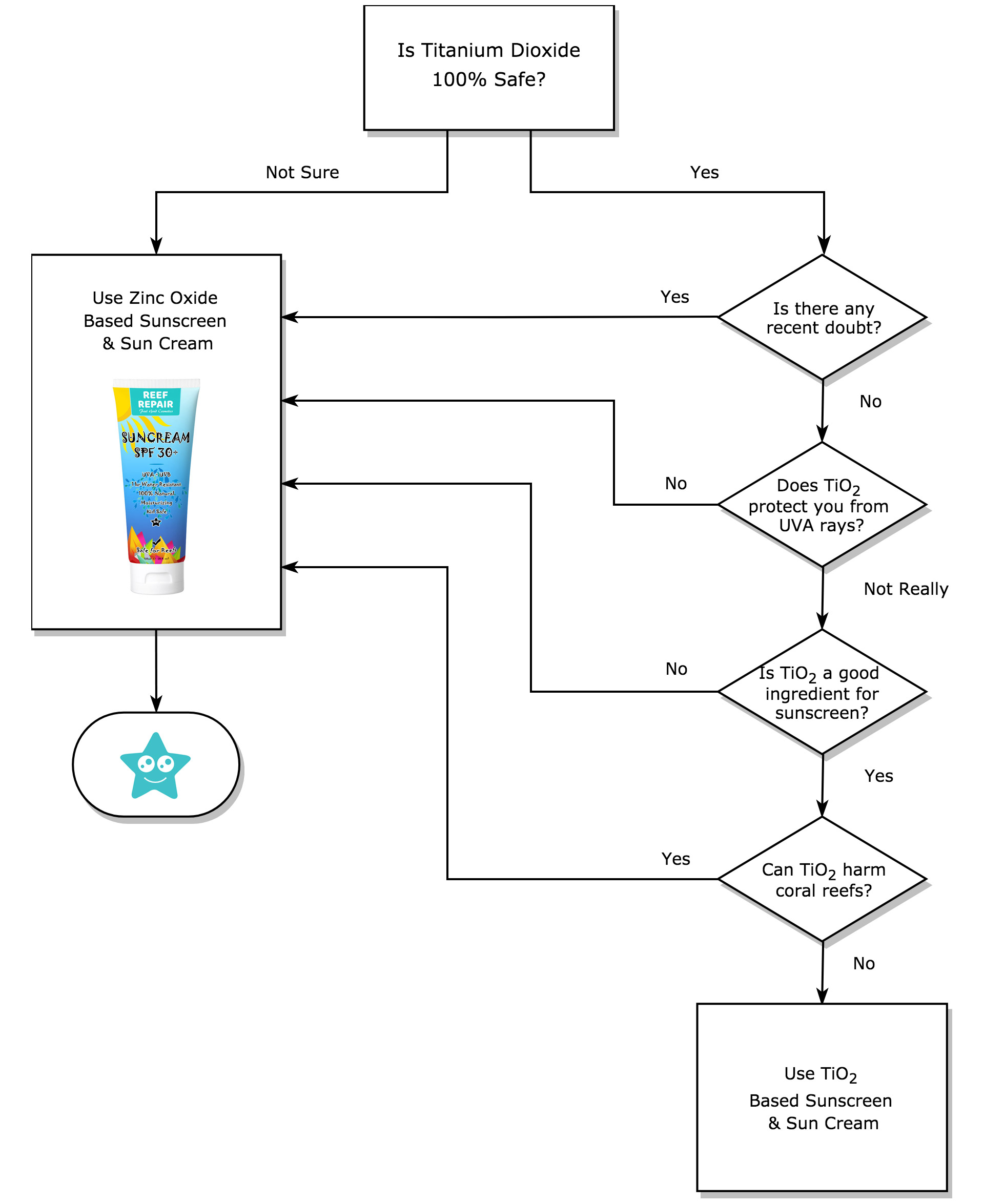

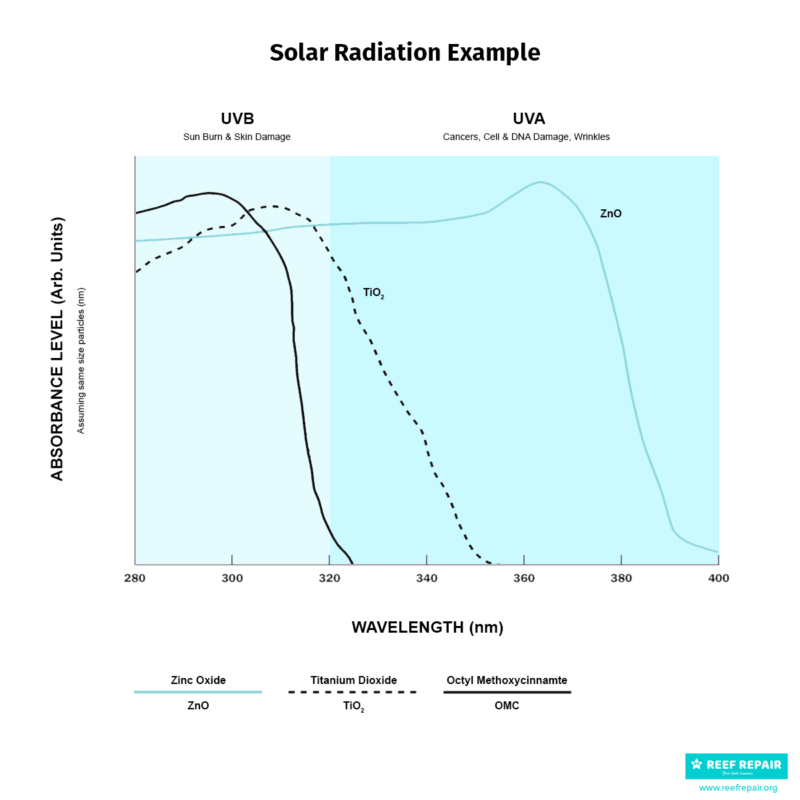
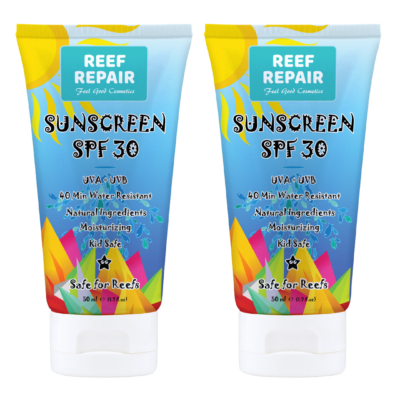
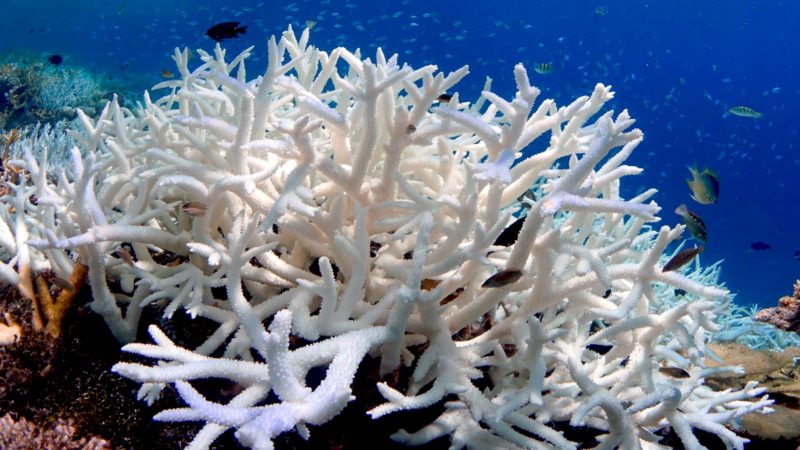
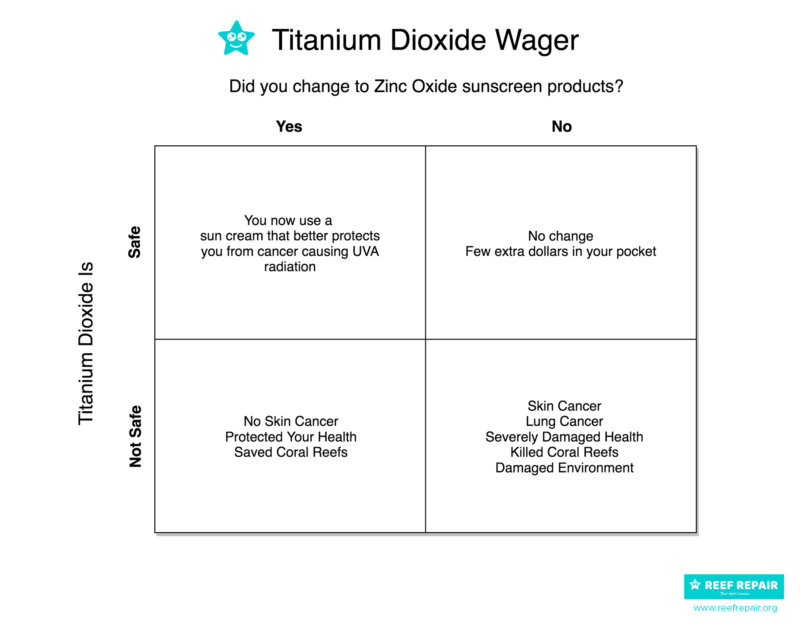

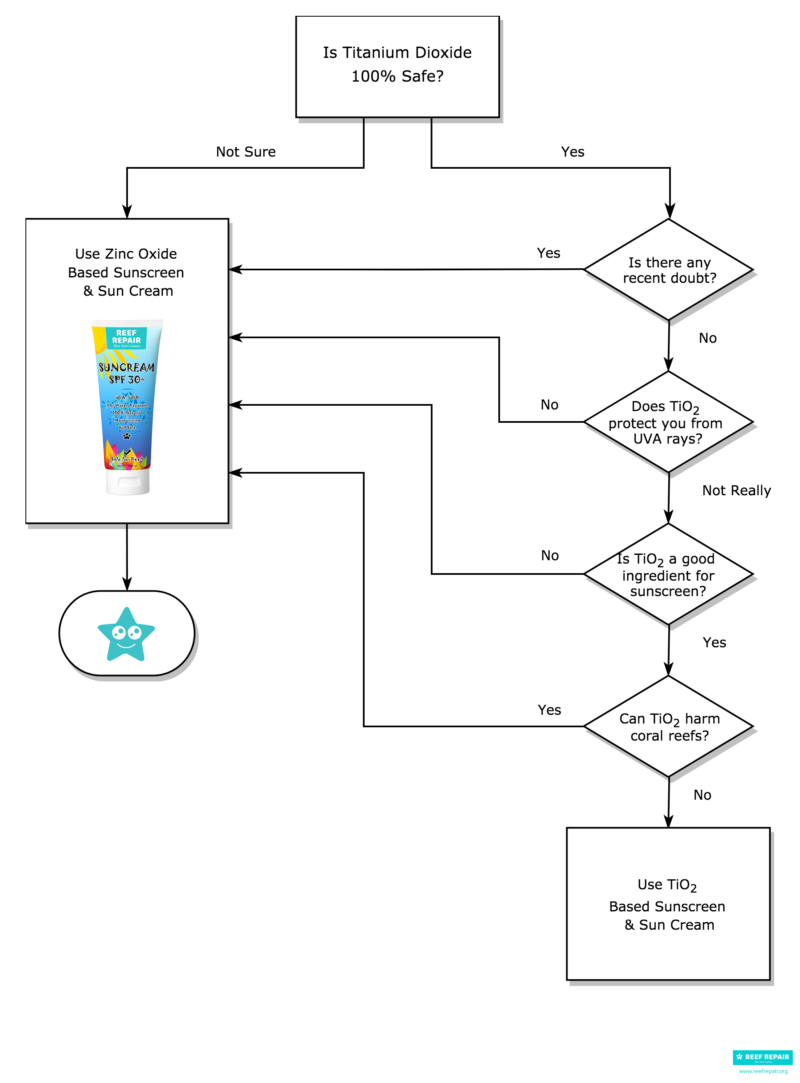
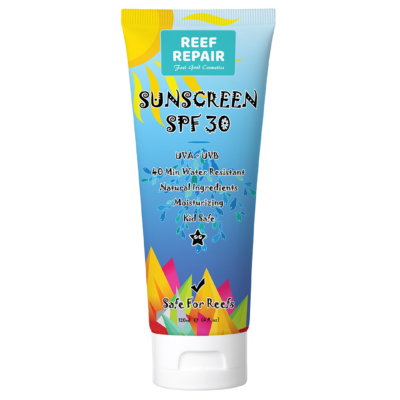

 (19 votes, average: 4.53 out of 5)
(19 votes, average: 4.53 out of 5)